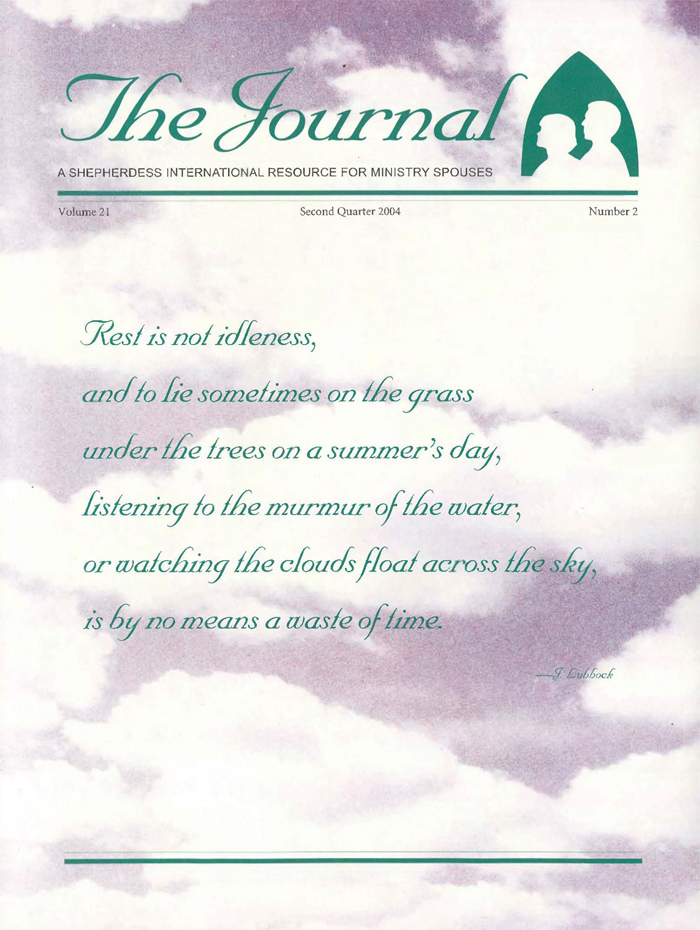Kristin is a junior at Hope College in Holland, Michigan. She is a psychology major and hopes to be a guidance counselor same day. She loves the ocean, hanging out with friends, and hearing her dad preach.
The football field, wet from a recent spring downpour, was littered with 13-year-olds. A pickup game of ultimate Frisbee with my junior high youth group was in full swing. Panting deeply, I dodged my opponents until I was open. The red plastic disc whizzed through the air. I stretched out my hand to grasp it and was promptly jabbed in the stomach by an intercepting hand. I fell backward onto the soaked grass.
"Hey, watch it!" my youth pastor bellowed from the sidelines. "You'd better not hurt the pastor's daughter; otherwise, we all might get in trouble!" My jaw dropped as I scowled at the man who had just humiliated me. My rival looked at me condescendingly as he extended his hand to help me up. A hundred thoughts raced through my mind. There goes the pastor's-daughter label again! Why do I always have to be singled out as a glass doll that cannot be broken? Can't I just be treated like everyone else? I quietly ambled off the field.
I despised being a pastor's kid growing up. But looking back on it almost several years later, I realize how much I appreciate what my father does and how it helped shape me. There are countless benefits I could tick off, but here are three:
1. Being a PK caused me to realize that my life as a Christian is viewed by others. This used to irritate me. Due to my dad's position, I was noticed more than other kids in my church, so I thought my job was to be flawless in the eyes of others. I would get frustrated when I made public mistakes or when my personal character failed to scream perfection. However, as I matured, I realized I had a great witnessing opportunity as a pastor's daughter. I am far from being a perfect Christian, but if display Christ's love to the members of my church as well as to those outside of it, people will see Jesus in me. And if my faults are evident, too, people will realize that they don't have to be perfect to have a relationship with God.
2. Being a PK gave me the opportunity to relate to the age spectrum of the church. I connect well with older people because they have always been part of my family's life. Every week after the service, my dad would stay behind and chat with various members of the church until no cars were left in the parking lot. My dad's personable nature was contagious, and I soon found myself holding conversations with adults and elders while I waited for my dad. Those talks polished my communication skills, and I gained many wise insights for life.
3. Being a PK helped me to develop a sense of empathy for others at an early age. We would often pray around the dinner table for people in the church who were going through difficult times. Not only did I come to realize the power of prayer at that table, but I also learned what it meant to have compassion for others, to put myself in their shoes, and to catch a glimpse of their pain and heartache. In caring for others, I saw God change lives. And that's awesome.
Back when my youth pastor singled me out on the football I bristled at being categorized as "special" Now that I'm in college and working with kids at Bible camp, I've come to see that I am—not only because I'm His, but because I was raised in a ministry home.
